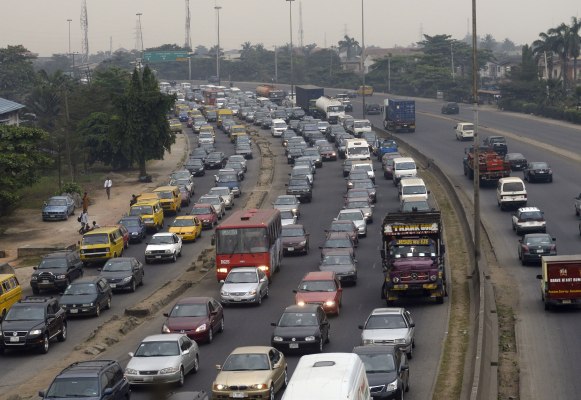Entrepreneurs in developing nations have redefined the words “bootstrapping” and “disruptive,” creating all kinds of businesses that solve major societal problems. These solutions affect hundreds, thousands and sometimes millions of people, and are often developed with few resources and scarce funding. For me, it’s impossible to think about these two (sometimes overused) words without thinking of the people who are truly driving global change.
Entrepreneurs have turned their visions into reality with the aid of technology, which has shaped virtually every sector: banking, healthcare, transportation, education, agriculture — the list goes on. Most of the time, entrepreneurs in the developing world (and in emerging economies) are skipping generations of technology to leapfrog in front of other companies, even in the U.S.
It’s only a matter of time before developing nations compete at a global level, as the rate of entrepreneurship and technological booms have changed the ecosystem. Here are a few examples that demonstrate all it takes is a good idea, technology and determination to change a nation for the better.
Mobile payments
Banking is becoming more critical to Sub-Saharan Africa’s GDP, but financial institutions are weak. Mobile payments — a more scalable, lower-cost alternative to traditional banking — are the region’s leapfrog, with more than two-thirds of people on the continent owning smartphones. EY estimates that digital payment platforms could grow the GDP by half a percentage point each year. Think about when PayPal came out — no one thought it would work, and now it is a payment powerhouse!
Kenyan Ken Njoroge, co-founder of the mobile payment system Cellulant, had foresight that mobile payments would be a national driver back in 2004, when he bootstrapped his business idea with just $3,000. Cellulant is now the connective tissue between consumers, merchants, banks and mobile operators in Africa. It’s a one-stop shop for users to pay local merchants and conduct transactions with the bank. This is exactly what the region needed to stimulate commerce.
We’re going to see entrepreneurs of the developed world borrow ideas from the bootstrappers of developing economies.
Regulators have become more receptive to mobile banking, considering that its security enhancements limit fraud and provide greater consumer confidence. Today, Cellulant is available in 10 countries, has more than 40 million users and has employed 300 people. It has built a network of partners in every industry of the region. Because banking touches every corner of business, this is a tremendous driver for the economy in Africa.
Transportation
Traffic might be a pain in the U.S., but it is also a business opportunity. The Bay Area startup Scoop is saving the environment every day by getting hundreds of cars off the road, putting people together to commute to work and bringing from larger geographic areas more talent to companies that desperately need it. Similarly, traffic congestion and carbon emissions are an issue in Africa’s most populous country, Nigeria. Congestion due to traffic affects the quality of life, the competitiveness of the nation and its ability to attract new businesses.
The sharing economy has proven to be a viable solution to air pollution and bottlenecking. GoMyWay, a ridesharing platform, was created last year to offer residents a faster, more reliable and cheaper way of getting around in Nigeria. The mobile platform allows users to see who’s driving on their route, and drivers can offer rides with just a few taps. All users are vetted by the platform to ensure a safe experience, and users can publicly comment on their experiences, which boosts accountability.
Unlike traditional taxi services and the Ubers of the world, GoMyWay wasn’t built with the intention of providing income to drivers. The platform recommends a fare based on distance and fuel cost, but the rider and driver can agree on a different amount (a cultural tactic that makes sense there). This puts the focus on making commuting easier and minimizing harmful emissions. GoMyWay is soon launching in South America, Kenya and Ghana, and these nations will soon be reaping numerous advantages, as well.
Healthcare and community
According to the World Health Organization there are fewer than two doctors for every 1,000 people in Latin America, and, because of geographic isolation (at least 25 percent of Latin Americans live in rural areas) and a lack of transportation, many residents cannot access a doctor at all. The closest hospital where I lived in Bolivia was four hours away.
All it takes is a good idea, technology and determination to change a nation for the better.
The U.S. has had very little disruption in healthcare, but things are changing as we look south. Since 2005, MEDLIFE has been working with its mobile clinics to bring basic healthcare services to urban slums outside of Lima, Peru, as well as the rural areas of Cuzco, Peru and Tena and Riobamba, Ecuador. General practitioners travel to low-income areas to provide patients with dental, OB/GYN and pediatric care, as well as access to preventive tests. These mobile clinics are essentially laboratories with the tools needed for rapid testing.
The organization provides year-round follow-up services and preventive health education. This amazing organization has also completed more than 200 community development projects, constructing homes and schools and improving sanitation. All public donations and fundraising goes to these projects; not a single penny is spent on overhead or administrative costs.
Think of the implications here: By improving health, education and the quality of life in these countries through mobile clinics, MEDLIFE is allowing thousands of families a better shot at life.
I hope you like to play leapfrog, because I’m confident that in the coming years, we’re going to see many more innovations like these pass us by. We’re going to see entrepreneurs of the developed world borrow ideas from the bootstrappers of developing economies. Cheers to disruption that will make us all better!
